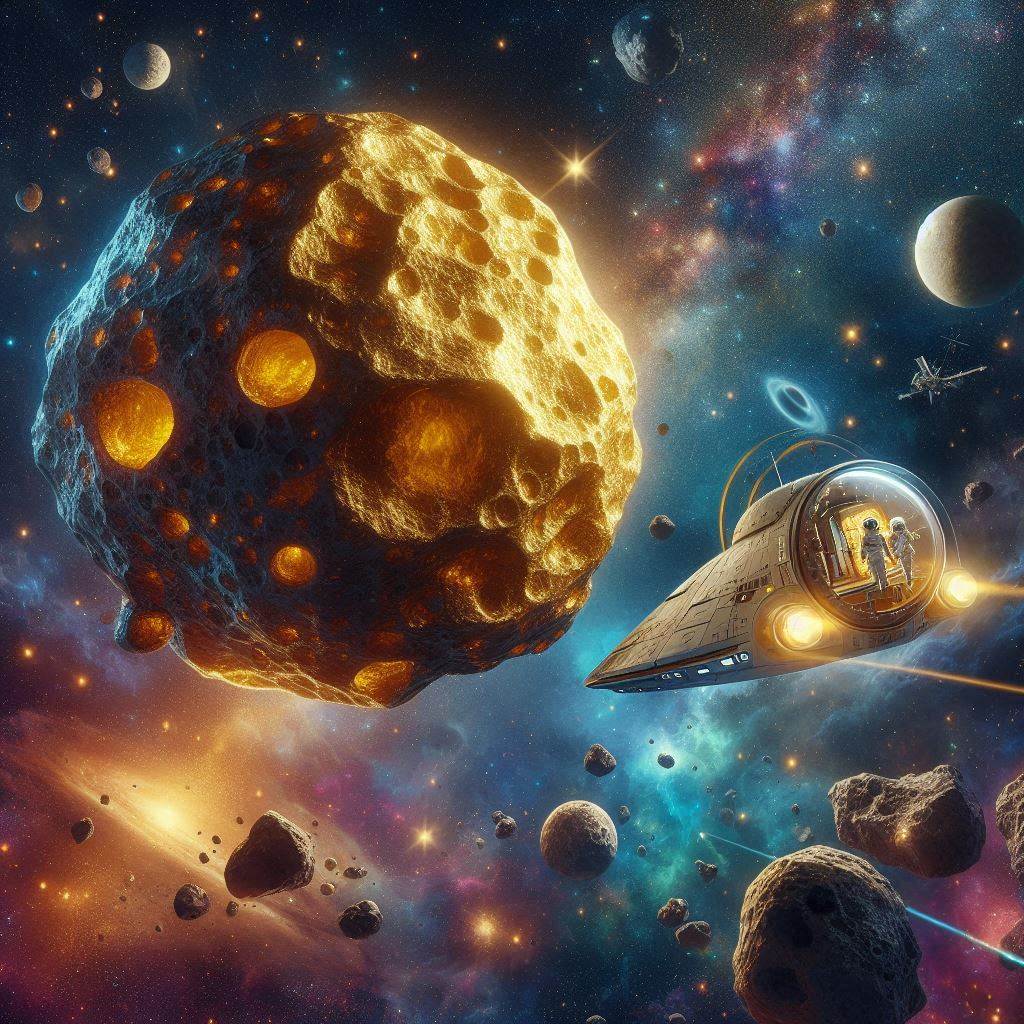
The concept of mining asteroids and comets for their valuable resources presents a fascinating potential solution to some of Earth’s resource scarcity issues. The premise is that these celestial bodies are rich in minerals and compounds that are becoming increasingly rare on our planet. By tapping into the wealth of space, proponents argue that we could bring back an abundance of precious materials like platinum, gold, and rare earth elements, as well as water, which can be used for sustaining life in space or converted into rocket fuel.
The economic implications of such an endeavor could be vast. If successful, space mining could inject trillions of dollars’ worth of materials into the global economy. This influx could potentially lower the cost of essential goods and technologies, making them more accessible to a broader segment of the population. For instance, rare earth elements, which are critical for manufacturing electronics, could become cheaper, leading to more affordable technological devices and services.
Moreover, the process of space mining could generate a new industry, creating jobs and stimulating economic growth. This could contribute to poverty reduction by providing new employment opportunities and fostering economic development in areas connected to the space industry.
However, it’s important to note that the potential benefits of space mining are not guaranteed to translate into poverty alleviation. The distribution of wealth and resources is a complex issue tied to economic policies, governance, and global markets. There’s a risk that the profits from space mining could concentrate in the hands of a few corporations or individuals, exacerbating economic inequality rather than alleviating poverty.
Furthermore, the technological and financial barriers to space mining are significant. The costs of space missions are extraordinarily high, and the technology for mining and returning resources from space is still in its infancy. These factors make space mining a risky investment, and it’s uncertain when or if it will become a viable industry.
In conclusion, while the idea of mining asteroids and comets holds promise for adding vast new resources to our economy, its ability to end poverty depends on numerous factors beyond just the acquisition of space-based materials. It requires careful consideration of economic models, equitable distribution, and sustainable development practices to ensure that the benefits of such an extraordinary venture would reach all levels of society.STSA
Naveen Jain, an entrepreneur with a vision for space exploration, co-founded Moon Express with the ambitious goal of mining the moon. This venture aims to extract valuable resources such as gold, cobalt, platinum, and Helium-3, a potential fuel for nuclear fusion reactors. Helium-3 is particularly enticing because it is rare on Earth but more abundant on the lunar surface, and it could play a crucial role in clean energy production. Moon Express also plans to prospect for water at the moon’s south pole, which could be instrumental in creating rocket fuel for future missions to Mars and beyond. Jain’s company is not just focused on resource extraction; it envisions a broader scope of lunar activities, including research facilities that could aid in Mars colonization and even, ambitiously, as a destination for space tourism. The company has already received significant recognition, including a $10 million award from NASA, and is considering partnerships with space industry leaders like SpaceX to realize these goals. Jain’s approach to moon mining is part of a larger vision that includes his work with Viome Life Sciences, where he aims to “make illness optional” by developing precision nutrition to prevent and reverse chronic diseases. His entrepreneurial philosophy emphasizes the importance of obsession over passion when it comes to solving problems, indicating a relentless pursuit of innovation that spans both terrestrial and extraterrestrial ambitions.
The Royal Society, as a fellowship of many of the world’s most eminent scientists and the oldest scientific academy in continuous existence, has not issued a formal stance on the mining of space for precious metals. However, the concept of space mining is gaining traction within the scientific community due to the potential it holds for providing resources for future space endeavors and addressing the depletion of certain minerals on Earth. The extraction of precious metals from asteroids, for example, is seen as a possibility that could revolutionize how humanity acquires these materials. It is important to note that while the Royal Society of Chemistry, a separate entity from the Royal Society, has acknowledged the rarity of elements like iridium and the challenges in sourcing them on Earth, the broader implications of space mining involve numerous scientific, ethical, and legal considerations. These include the environmental impact of such activities, the economic feasibility, and the need for international regulations governing the exploitation of extraterrestrial resources. As space mining ventures progress, it is likely that institutions like the Royal Society will contribute to the dialogue, offering guidance based on scientific evidence and ethical considerations. For now, the focus remains on research and the technological development necessary to make space mining a viable option for the future.
Authored by Calvin Boyles, Founder.
